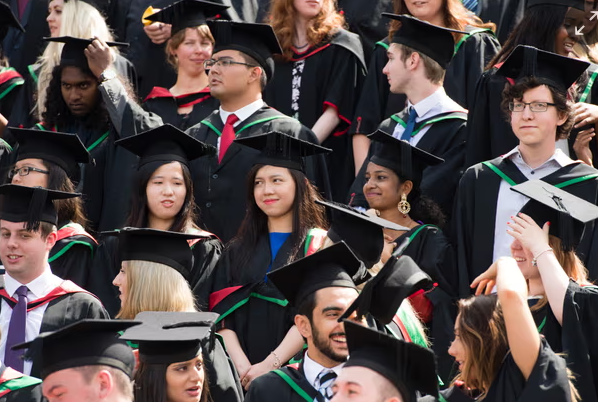
Amid growing uncertainty in the United States, the UK is emerging as a preferred destination for international students who are increasingly wary of studying in America. Former Universities Minister Jo Johnson and education leaders are urging the British government to seize this opportunity — and not let immigration anxieties jeopardize the country’s educational and economic future.
At a recent global education conference in San Diego, delegates heard troubling accounts of foreign students in the US being detained or deported for minor infractions, such as parking violations, under increasingly harsh immigration enforcement policies. Reports suggest that as many as 500 student visas have been abruptly revoked, leaving many young scholars in legal limbo.
“Universities in the UK should open their doors wider than ever,” said Jo Johnson, now a visiting professor at King’s College London. “This is our moment to become a safe haven for the world’s brightest minds.”
Johnson emphasized that international students bring far more than cultural diversity — they’re a vital economic asset. In 2022–23, overseas students contributed nearly £12 billion in tuition fees, supporting UK universities, many of which now rely on this income to stay afloat.
But the opportunity comes at a time of deep tension in Whitehall. While ministers publicly recognize the benefits of attracting global talent, internal pressures to cut overall immigration numbers remain strong. A long-delayed immigration white paper — now expected later this year — could further restrict student visas, despite mounting evidence that such policies are self-defeating.
Meanwhile, the US — long seen as the gold standard in higher education — is losing appeal. Trump’s re-election campaign and renewed anti-immigration rhetoric have cast a long shadow over American campuses. Universities are reportedly warning international students not to leave the country, fearing they may not be allowed back in. That uncertainty is already deterring new applicants.
The UK, by contrast, retains unmatched soft power: 58 world leaders were educated in Britain, and the country’s universities continue to rank among the world’s best. Yet policies like the recent ban on student dependents — which triggered a 15% drop in student numbers — could blunt that advantage.
Polling by British Future shows 61% of the UK public supports student immigration, with only 27% opposed. Experts are calling for a rethink of how student numbers are reported in immigration statistics, arguing that short-term scholars shouldn’t be counted alongside long-term migrants or asylum seekers.
The Institute for Government has called for an annual migration strategy that balances economic needs with immigration control — and avoids the political tug-of-war currently playing out between the Home Office and other departments.
“If growth is truly a national priority,” Jo Johnson said, “then international students should be at the heart of that strategy — not pushed to the margins.”





